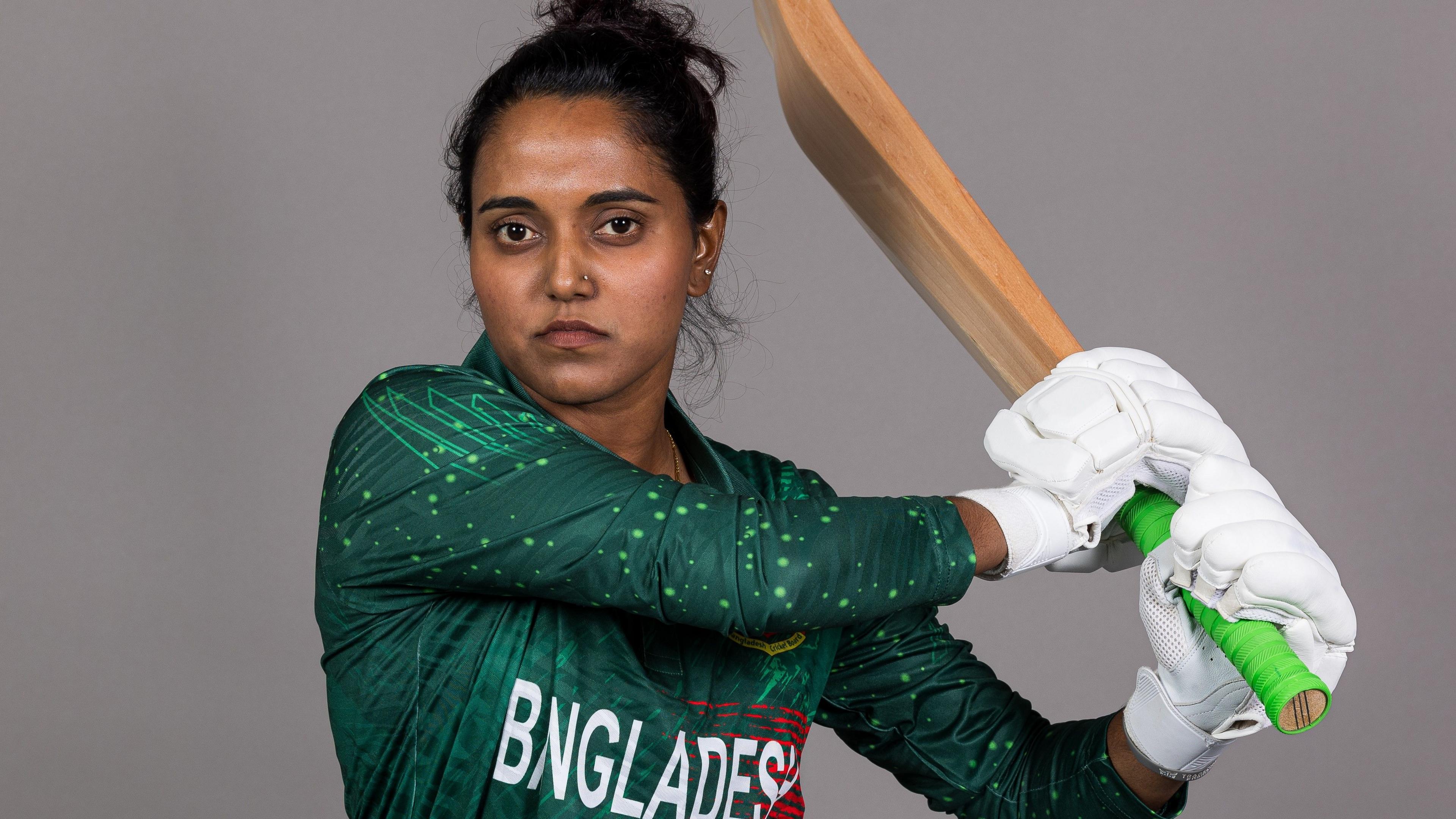ARTICLE AD BOX
 Image source, Getty Images
Image source, Getty Images
Nigar Sultana Joty will win her 100th T20 cap for Bangladesh in the opening game of the T20 World Cup
Tawhid Qureshi
Freelance journalist
There will be a tinge of regret for Bangladesh’s players when the Women's T20 World Cup kicks off on Thursday.
As the host nation, they should have been playing Scotland in the tournament's opening match in front of a packed-out stadium in Dhaka.
Instead, they will likely be playing in front of a sparse crowd in somewhat unfamiliar conditions, with their chances of surprise victories along the way lessened.
It’s a far cry from what was envisaged just a few months ago.
The eleventh-hour change of location for the World Cup was the result of weeks of widespread political unrest in Bangladesh, which eventually led to the installation of an interim government.
The International Cricket Council (ICC) was left with little choice but to shift the World Cup from Bangladesh to the United Arab Emirates in late August.
The lack of law and order meant governments from participating nations, including England, advised against travel to Bangladesh.
The loss of home advantage will be felt acutely by a team who have only won one match in five T20 World Cup competitions.
Earlier this year, Bangladesh suffered nine straight T20 losses, including series clean sweeps by Australia and India.
However, 2023 was a relatively successful year, with impressive victories against South Africa away and India at home, which gave hope of a new dawn for the team just 12 months from a World Cup on home soil.
Much of that hope has now dissipated.
Is a once-in-a-generation boost lost?
While the Bangladesh Cricket Board (BCB) retains hosting rights for the World Cup, it is unclear what this means in terms of finances.
Despite being contacted, the ICC and BCB did not provide details of potential lost revenue.
The wider impact from not hosting the World Cup is also difficult to quantify. The BCB is currently in a state of transition as political allies of the previous government are jettisoned, but it has made tentative steps in recent years to develop the women’s game, including a clear age-group pathway for elite players.
The once-in-a-generation boost that women’s cricket in Bangladesh would have felt, in terms of participation and investment, by virtue of hosting the World Cup will no longer be experienced. That is, perhaps, the most significant and long-lasting effect of losing the World Cup.
"I was very shocked, disappointed and sad," said Bangladesh captain Nigar Sultana Joty when reflecting on the decision to move the tournament.
"Very few payers get the chance to play in a World Cup in front of a home crowd. It was a dream. It’s not just about us, it’s about our families also. They were excited about watching us play in the World Cup. It was very hard for us. It took me two or three days to accept."
Bangladesh open against Scotland on Thursday (11:00 BST) before facing England, South Africa and West Indies in a difficult group which precedes the semi-final and final.
Will the change of government bring better representation?
The BCB has always been closely aligned to the government of the day and despite the country being led by a female Prime Minister, Sheikh Hasina, for 15 years, there has never been a single female among the BCB’s board of directors.
Bangladesh’s non-partisan interim government has proposed reforms for the BCB, but it remains to be seen if they will include greater female representation within cricket administration.
Joty believes progress has been made in Bangladesh women’s cricket, although more needs to be done.
"It’s going the right way, we get the same facilities as the men right now. I hope one day we get the same amount of financial support from the BCB," she adds.
"They could also take steps to create more competitive domestic leagues."
As Bangladesh begins a phase of rebuilding its bruised political institutions, normality is slowly returning to the streets.
Ironically, the South Africa men’s team are due to play a Test in Dhaka the day after the women’s T20 World Cup final.
The spectacle of international cricket returning to Bangladesh and almost overlapping with the World Cup will only increase the sense of 'what if' for Bangladesh women’s cricketers and supporters alike.
Follow ball-by-ball coverage of every game in the Women's T20 World Cup on BBC Sounds, with live text commentaries and in-play clips on the BBC Sport website and app.

 3 months ago
17
3 months ago
17








 English (US) ·
English (US) ·